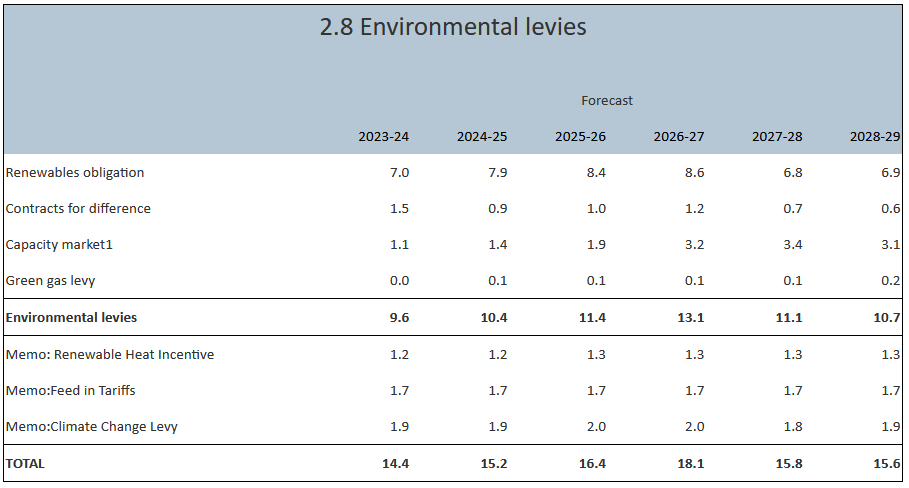OFCOM rules clearly demand ‘due impartiality on matters of political or industrial controversy and matters relating to current public policy’.
Channel 4’s new climate change series has just driven a coach and horses through them.
The two-part series called The Great Climate Fight is presented by those well-known climate experts Kevin McCloud (designer, writer and tv presenter), Hugh Fearnley-Whittingstall (cook) and Mary Portas (retail consultant). As they admit, they are veteran campaigners, and are filming this documentary because they want ‘to make real change’. And the opening sequence of statements from them leaves us in no doubt of this:
‘What if I told you that solving the climate crisis is possible?’
‘The good news is that we have the tools’
‘The problem is our politicians’
‘We’ve got a plan. We can get to Net Zero’
‘Global warming can be stopped’
‘But our politicians are failing us’
‘The solutions could benefit us all’
‘Onshore wind is the cheapest form of electricity’
The first episode then proceeds to quote renewable lobbyists while criticising and haranguing the government.
The whole of their emphasis is on the UK Government, but there is not a single mention as far as I could see of the fact that the UK produces only 1 per cent of the world’s manmade emissions, which continue to rise as ours fall. But the impression they want to give viewers is that the UK really could stop climate change on its own. Nowhere of course are there any counter claims or challenges to the opinions expressed.
As well as being wholly one-sided, the programme makes several false claims.
They have a battle bus which is prominently shown throughout. The banner on the side states: ‘We give the oil and gas industry £42million a week in tax breaks’. The official data shows that taxpayers don’t pay a penny to the oil and gas sector. Instead North Sea oil and gas paid £9billion in tax last year:

The second big lie concerns onshore wind, which one of the presenters claimed had been ‘effectively banned’ by David Cameron. As even the BBC have been forced to admit, this simply is not true. All that happened was that subsidies were abolished and wind farms were made subject to local planning permission. Very few wind farms were built after that decision in 2016 because they were not economical.
In any event, Fearnley-Whittingstall’s demand that the government ‘stop blocking’ onshore wind is rather out of date, as many projects were given subsidies again last year! The programme ignores this, repeating the grossly misleading claim that gas power was nine times as costly as wind for a few days last year. Indeed, it goes on to claim that our energy bills would be much lower now but for that ‘ban’.
There is no basis for this claim. Last year energy users had to pay £1.7billion in subsidies to onshore wind. Since 2016, subsidies for onshore wind have totalled over £9billion. And that figure does not include the wider system costs involved. Even the newest wind farms are not cheaper than gas power – they have CfDs at a price of around £110/MWh. Between 2016 and 2021, market prices were around £50/MWh, so our energy bills would have been much higher for most of the time since 2016 if more wind farms had been built. Even now the market price is still cheaper than wind power, at around £80/MWh in recent months.
But the biggest lie of the lot is the claim that we would all be better off under Net Zero policies. They don’t explain how we would be better off paying ten grand more for EVs. They don’t explain either how we would be better off with heat pumps that cost fifteen grand.
Nor do they explain how people will be better off when they lose their well-paid jobs in the energy sector, steelmaking and other manufacturing businesses, which will not be able to compete under the burden of high energy costs and Net Zero regulations.
Unfortunately in luvvie world, none of these things matter. An extra ten grand for a car? Don’t worry, Channel 4 will pay me a fortune for making another rubbishy documentary!
You can watch the start of it here.
Electric car sales targets slashed by almost half
FOLLOWING the Chancellor’s Autumn Statement, the Office for Budget Responsibility (OBR) has drastically lowered its forecast for electric vehicles’ share of new car sales in 2027 from the 67 per cent it projected in March to just 38 per cent. Currently EV sales are stuck at around 16 per cent.
In my view, there is not a cat in hell’s chance of sales getting even to 38 per cent by 2027. According to the Society of Motor Manufacturers and Traders (SMMT), three-quarters of EV sales are for fleet/business, largely because of favourable tax treatment. This sector is probably already near saturation.
However there is very little interest amongst private buyers for EVs, which typically cost £10,000 more than conventional cars, and are pretty useless for anything other than around-town driving. The Mini Electric, for example, is £9,615 dearer than the petrol equivalent, and has an effective range of little over 100 miles.
This creates a huge problem for motor manufacturers.
Rishi Sunak gained the headlines last month when he announced that the ban on the sale of new petrol/diesel cars would be delayed until 2035. But crucially he left in place the Zero Emission Vehicle mandate (ZEV). The mandate requires a rising percentage of individual manufacturers’ total annual sales to be zero-emissions vehicles each year.
Next year motor manufacturers must hit a quota of 22 per cent. If they fall short, they must pay a penalty of £15,000 for every non-ZEV car sold outside their allowances (although they can carry forward any shortfall). By 2027, the quota will be 52 per cent.
If the OBR is right, there will be a shortfall of about 280,000 EVs in 2027, which implies a penalty charge of £4.2billion. A penalty of this magnitude would kill off the UK motor industry. That would leave them with two choices:
1) Try to recoup the penalty by increasing the selling price of internal combustion engine cars (ICEs), which would add about £3,000 to every car sold.
2) Produce and sell fewer ICEs to boost the ratio of EVs.
I suspect they will end up doing both. By putting up prices, they will automatically reduce demand.
In short, if we do not obey the government and buy ICEs instead of EVs, we will have to pay an extortionate tax instead. Meanwhile jobs will be lost as manufacturers cut output.
I don’t remember voting for this!
Green subsidies to cost us £95billion in next six years
THE OBR has published its latest Economic and Fiscal Outlook, which details the data and assumptions behind the Chancellor’s recent Autumn Statement. https://obr.uk/economic-and-fiscal-outlooks/
Table 2.8 shows the costs added to energy bills as a direct consequence of government policy – in this case, the cost of the various assortment of renewable subsidies, capacity market payments and climate change levy. The Renewable Heat Incentive is listed as a ‘Memo’ item, as it is funded out of general taxation.
(Please note that the Climate Change Levy appears elsewhere in the outlook; I have taken the liberty of including it in 2.8 for completeness. Also the OBR decided to exclude Feed in Tariffs from the table a couple of years ago; I have reincluded them, as they were wrongly excluded and do increase energy bills.)

https://obr.uk/efo/economic-and-fiscal-outlook-november-2023/
As you can see, the cost next year will amount to £15.2billion, over £500 for every household in the country. Between now and 2028/29, it will add up to £95billion.
And this is by no means all the cost of switching to renewable energy, as it does not include grid upgrades, system balancing and constraint payments, which the government refuses to put a cost on.











